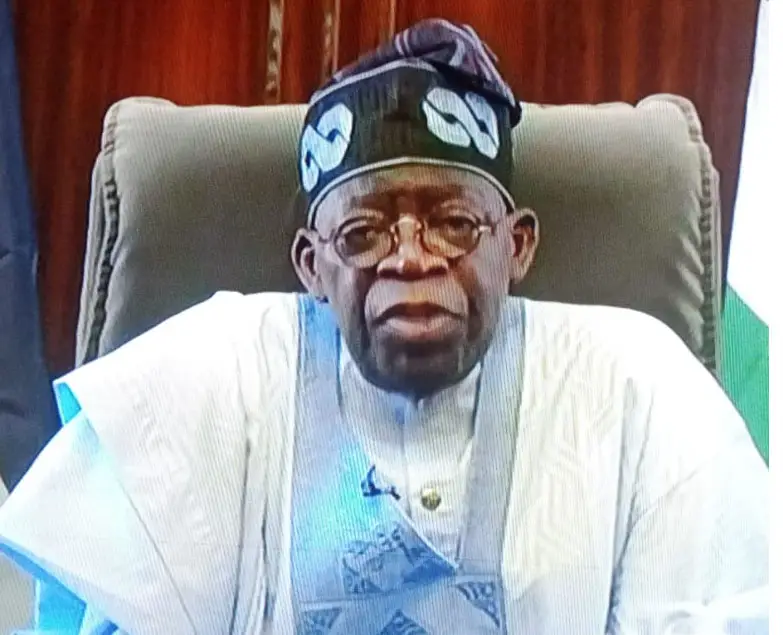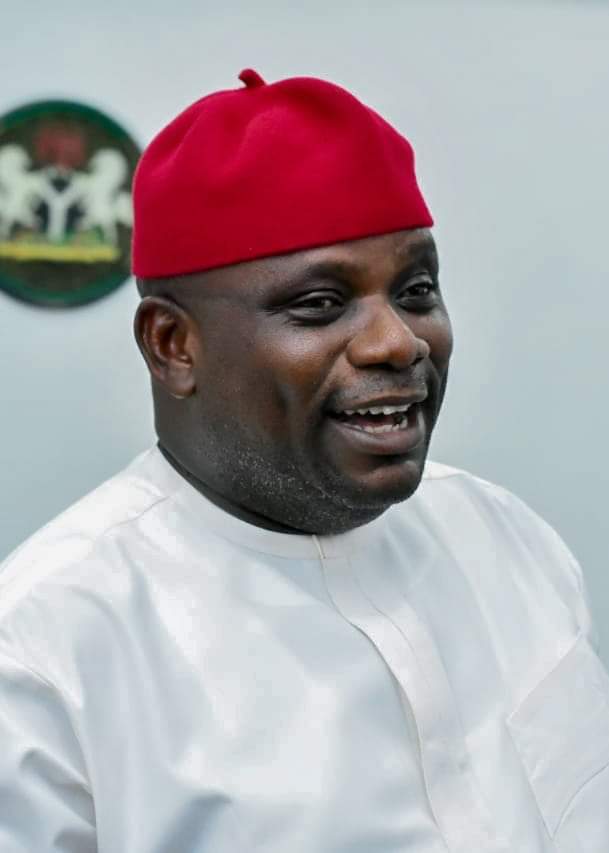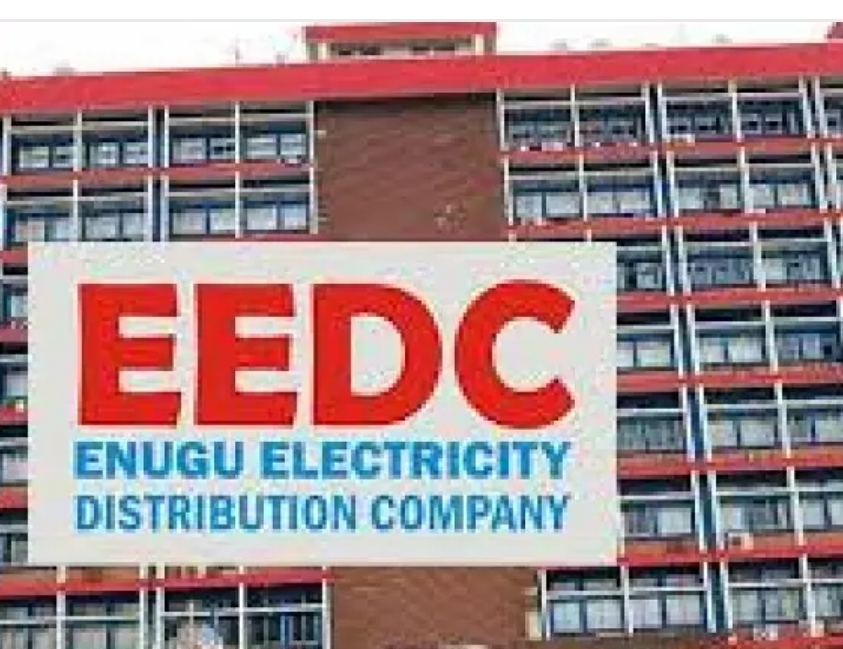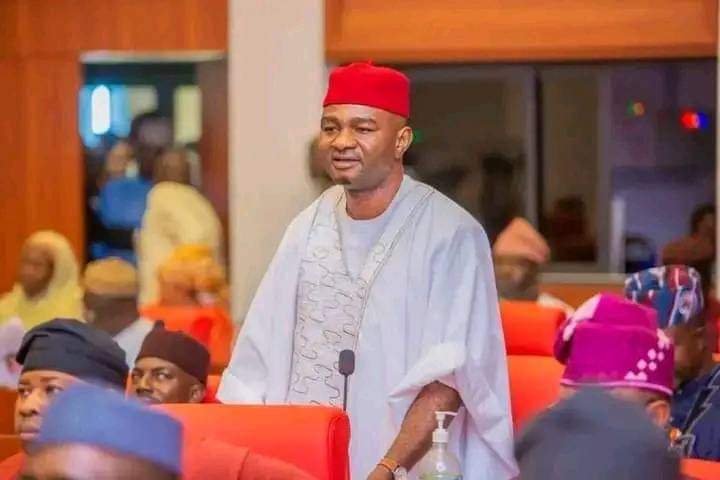President Tinubu’s last Monday broadcast came against the backdrop of shrill criticisms of the palliatives he had wanted to roll out using the shambolic template of his predecessor and a well-promoted protest by the Nigeria Labour Congress, NLC, against the withdrawal of fuel subsidies. By speaking directly to the people, the President sought to achieve two goals: To assuage the anger of Nigerians, who are hurting from the consequences of the withdrawal of fuel subsidies, and to pull the rug from under the feet of the NLC, which has since become a toothless bulldog and is cast as a serial betrayer of the Nigerian people.
In assessing the President’s first broadcast, one must begin from the pedestrian to the sublime. The broadcast itself speaks eloquently to how scant thought or intellectual rigor is brought to bear on this government’s policies, especially the dire consequences of the withdrawal of fuel subsidies, which was carried out by fiat and with a presidential flourish. Thus, rather than being proactive and on top of his game, the President has been reacting to issues as they arise. Ad hocism and short-termism appear to be the order of the day, where forethought and thoroughness should inform and undergird government policies and pronouncements. Despite his inability to think instead of challenges and to proffer enduring solutions in advance of them, the President appears, at least, to be responsive, unlike his insensitive and aloof predecessor.
The President seems, in his opening paragraph and conclusion, to trivialize and make light of the same broadcast in which he desperately sought to secure the buy-in of Nigerians. The broadcast, though, came across as lucid and exquisitely crafted. Rather than plunge headlong into the speech, he presaged it by saying needlessly: “I am not going to talk in difficult terms by dwelling on economic jargon and concepts”. This preliminary remark was unnecessary. And to conclude that he should be allowed to “get back to work” after he has delivered the broadcast shows clearly the little standard he sets with his maiden broadcast. Leaders ought to appreciate that communicating their intentions succinctly is key to their being understood and their policies being widely embraced by followers. Besides, Nigeria is facing a myriad of critical challenges. These challenges call for frequent engagement with stakeholders. They call for being upfront with information so that government policies are not misconstrued and the task of those who should run farther afield with information to bring others on board is made less arduous. A government or organization that pays scant regard to communicating its intentions, in a timely, and using the appropriate channels will certainly rue its haughtiness.
Let us come to substantive matters, or brass tacks, as addressed in the broadcast. The President appears angry at the cabal(s) that fed fat on subsidies and the multiple exchange rates before his advent to power. Stopping them by withdrawing subsidies on fuel and floating the Naira does not suffice to revamp the economy. We need to create an enabling environment for manufacturing and production. We should also aggressively diversify away from a monocultural economy that depends on fossil fuels, which will soon be supplanted by other sources of energy that emit less or zero carbon. Unless the country invests in production and earns hard currency, its currency, the Naira, will continue to be buffeted by other stronger ones such as the Dollar, pound, and Euro.
In the said broadcast, the President announced that his government will spend N75 billion between July 2023 and March 2024 to fund 75 enterprises with great potential to kickstart sustainable growth. While this is commendable, as it would create jobs and engage many of our youths, the broadcast fails to identify and categorize these enterprises. Which types of enterprises can, within less than one year, create the kind of impact being envisioned? The government needs to work out the details and put them in the public domain so that we are not left to assume that it is not good money being thrown at some phantom cabal in the guise or disguise of enterprises. Besides, to kick-start enterprises of the magnitude the President touts and for them to gain traction and impact the economy in a matter of months, it requires that we urgently and simultaneously invest in infrastructure and electricity. These are now in decrepit shape. Subsequent earnings, arising from the withdrawal of fuel subsidies, should thus be concentrated on providing adequate electricity and improving the education and health sectors. These will help facilitate and drive enterprises. Only an educated workforce can create maximum wealth or engineer the kind of tech startups in the United States, Europe, Israel, and China. By the same token, enterprises can only be fired and supported by electricity and good roads.
It is valid that the informal sector of the economy plus micro, small, and medium-sized enterprises are the major drivers of our economy. Energizing these sectors is as propitious as it is strategic in our quest to grow our economy. However, targeting 1,300 nano business owners in each of the 774 local government areas, LGAs, of the federation means we are looking at a total of 1,006,200. This figure is dismal. It will hardly address the kind of massive poverty that afflicts not less than 130 million Nigerians.
For Micro-Small and Medium-Sized EnterprisesMSMEsES, start-ups, and roll-out buses, one notes that the government pegs the interest rate at ninpercentnt and a repayment period of 36 months. While the repayment period is alright, benefiting companies should be further considering that we face an emergency. The interest rate should be brought down to as low as fivpercentnt. Besides, procuring 3,000 twenty-seater CNG-fueled buses divided by 774 LGAs means that each LGA will get an average of four buses. Assuming these buses are being deployed for intra-LGA runs, what happens to those commuting to work in the cities or embarking on inter-state travels? How then do these buses impact workers at the State and Federal levels and in commerciacenterses and cities?
The approval of an infrastructure fund for states to intervene in critical areas and revamp our health and educational facilities is a good idea, especially given the level of decay in the states. It accords with taking development to the grassroots. It also reflects the practice of true federalism: goods are devolved from the center to the periphery. One must, however, express serious reservations, given the sordid pedigree of the states in managing such interventions in the recent past. Often, these lofty interventions are meant to succor the people and are either diverted or stolen outright. Any such interventions must be informed by a rig-proof template, a rigorous mechanism for monitoring and evaluation, and transparent accounting. In the absence of these preconditions, these funds should be used to address challenges in our tertiary institutions, university teaching hospitals, and federal Medical centers.
No doubt about it, the President’s broadcast and the raft of areas he has identified for urgent attention cannot be a cure-all for our many challenges. Neither can it be a silver bullet, as observed by the NLC. But it promises to form the basis for serious engagement and a premise on which to build.
For this set of interventions to be entrenched, other corresponding efforts must be made to address the other challenges that confront us. This should be done subsequently, in earnest, and with undiluted concentration. Infrastructure such as the Niger Bridge, the Abuja-Kano Express Way, and the Lagos-Ibadan Express Way should be completed without delay. Other strategic roads, requiring dualization and repairs, should be embarked upon forthwith. Our tertiary institutions should be put in the finest fettle and on a pedestal to compete with the best around the world. Our hospitals and medical centers should be upgraded and equipped with ultramodern facilities so that our people do not have to seek medical treatment abroad. This will save precious lives and hard currency, which would have been spent on medical tourism. It will also stanch the drain of medical personnel from Nigeria to Europe and America.
Dazang, former Director of Voter Education at INEC, wrote from Abuja
Follow us for breaking News, Read, Like, and Share our content.
CDA NEWS Online.
Click the link in our bio for more





